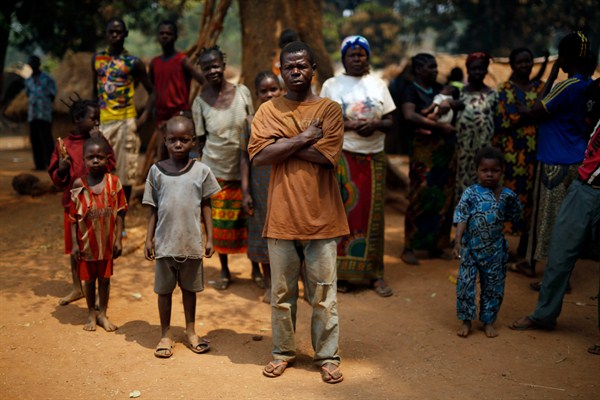Faustin Touadera, the newly elected president of the Central African Republic, has a big job on his hands. Elected comfortably last weekend with almost 63 percent of the vote against his rival Anicet-Georges Dologuele’s 37 percent, the former math teacher, who served as prime minister in the years preceding CAR’s 2013 descent into violence, has been given a strong mandate to tackle the country’s immense problems. But even that may not be enough, given the scale of CAR’s recent history of conflict and ongoing mistrust between religious communities.
Touadera’s victory in the second round of presidential election is expected to mark the end of a 3-year political transition established in the months following the fall of former President Francois Bozize, who was chased from power by the mainly Muslim rebel alliance known as Seleka. As the Seleka rebels swept southward across the country in late 2012 and early 2013, their advance ignited a series of bitter inter-religious killings, with mainly Christian “anti-balaka” self-defense groups emerging to seek revenge on Muslim communities. It’s been estimated that at least 5,000 people were killed as neighbors and villages turned on each other; at one point the United Nations estimated that a quarter of the country’s 4 million people had been displaced. Today, at least 360,000 people are still living in displaced people’s camps.
The political scene hasn’t been much better. There were allegations of fraud in the first round of the elections in December, notably from veteran opposition leader Martin Ziguele. In January, CAR’s Constitutional Court decided to annul the results of the simultaneously held legislative elections, citing numerous examples of mistakes and delays in issuing ballot papers. The court still has to review Saturday’s presidential results, but they are widely expected to be confirmed, and Dologuele said he will not contest them. The results of the first round of the rerun parliamentary elections, which were also held last weekend, have yet to be announced. The second round should now be held before the end of April.

